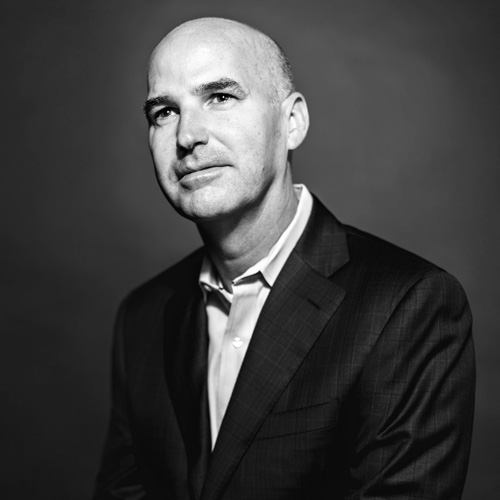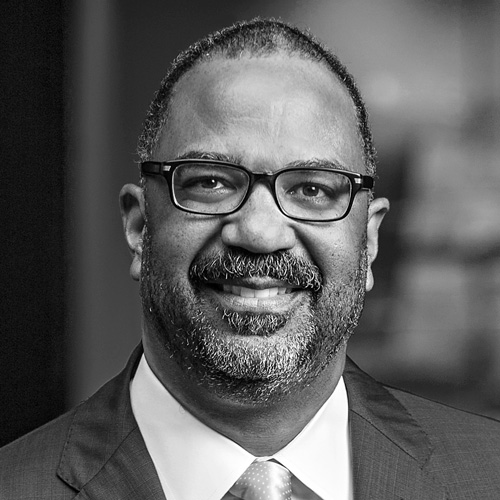Ed Wise is CEO of The CDM Group, the world’s largest fully-integrated healthcare communications company, and Profile’s first-ever guest editor. Wise shared with Senior Managing Editor Cyndi Fecher his leadership lessons and advice.
What experiences, professional or personal, have best prepared you for your current role?
I came up through the creative side of our business. I started as an advertising copywriter, eventually becoming creative director. I was responsible for conceiving and writing ads. It shaped my understanding of the importance of collaboration. As a writer, you can’t create anything without the partnership and talents of an art director, plus a whole team of people to sell and produce the work. It also taught me that you have to fail to succeed. It was rare that our first idea was the best idea. Creating great advertising was usually a process of experimentation, a series of ideas that we iterated and shaped into something better. I learned not to cling too much to my first idea, but to keep my mind open to the possibility and likelihood that there was always a way to make the idea better. It has helped give me courage in making decisions. I know it is a journey—it won’t be exactly right from the start—but with course correction it can find a path to excellence.
What is the biggest issue in your industry at the moment?
Technology has the potential to change the healthcare industry in some very powerful ways. Healthcare is complex, and complexity is the place where technology provides the greatest value. We are determined to lead in this transformation, as it relates to healthcare communications.
If you weren’t in this profession, what else would you be doing?
I could see myself as a chef or an architect. I love the process of creation—shepherding a fragile idea, a mere product of the mind—and then breathing life into it. I have also found tremendous reward in sharing my experience and learnings with others. I am dabbling in teaching right now, as a repeat guest lecturer at my alma mater, Bucknell University, and at the Wharton Executive MBA Program.
What surprised you in this issue of Profile? Favorite highlights or messages?
Purpose plays such a critical role in our ability to engage our people. With that in mind, I really enjoy the perspective of Hy Pomerance of QBE, who is connecting employees with their customer mission of protecting people from risk. I also found a similar emphasis from CHRO Annemieke van der Werff at MUFG, who works to engage their people around a common culture and set of values that are not just talked about, but are lived.
What would your colleagues be surprised to learn about you?
There is very little that I keep from my colleagues. In fact I like to reveal as much about my fears and failings as I do about our collective successes. I find it helps others get more comfortable with the idea that all of us are works in progress. But one of the things that surprises people is that I have a fundamental fear of speaking in public. I have overcome it to a large degree, and at times now I generally enjoy the experience, but it has been a journey for me. Early on in my career I realized that it could be career limiting for me if I took the approach of avoiding situations in which I needed to present. Advertising is a presentation-rich environment. So I took the opposite approach; I turned every situation into a presentation. I forced myself to present whenever I could. To this day, I still can get irrationally nervous before a presentation, but now I know how to harness those nerves into energy on the stage. I always arrive over-prepared and well studied. I know my material deeply, and it is always well rehearsed. There can be tremendous energy between the presenter and the audience—the trick is to harness and ride that energy instead of getting plowed under by it.
What’s the newest or freshest approach you’re bringing to your job?
These days I’m looking to reframe everything we do around here as a learning or developmental opportunity. Yes, every assignment we give an employee is a way to deliver our product to our clients. But it is also a platform for delivering a growth opportunity for that person. Finding and identifying the right assignment for the right individual, and framing it around the learning potential, is a critical part of what we are trying to achieve. We feel that if we are going to lead our industry, we need to have every individual in a learning posture. We can only grow as a company if our people are growing as individuals.
What’s the next skill or knowledge set you want to add to your repertoire to make you a better CEO?
Super partner. I think partnerships are going to be the thing that will drive leadership in our industry. But that starts with me studying, learning, and taking on all the attributes of a super partner. It frustrates me every time I get in my car and my navigation system struggles to find a sensible route. It is obvious to me that my car company shouldn’t be in the navigation business; they should be in the car business. That’s the way I want to approach the future of our business. I want to partner with people who do something very specific, very well. And then I want to add the very specific thing that we do very well. That’s an exciting offering, and a great way to create something exceptional. We are already doing it—it’s a steep learning curve and a cultural shift, but it is working.
When do you stand up for your vision?
Always. That’s my job. If I don’t stand up for it all the time, in all my behaviors and in everything we do, then I shouldn’t be the CEO. I have to live the vision if I expect others around me to do the same. It is comforting, too. When it’s time to make a tough decision, I simply have to see if this will contribute to our vision or not.
How do you continue to grow as a leader?
I’m the guinea pig for any executive development and leadership training we bring in from the outside. Last year that included a 360-degree review by a dozen of my colleagues, and then a two-day program built around implementing the learnings. I also pull in any new ideas from the outside and sample them, and see if they would dovetail with our culture. It has exposed me to a tremendous amount of thinking around leadership. I also like to set stretch goals for myself. This year, I need to become as tech savvy as possible. While I have hired an incredible new chief digital officer, I am learning everything I can about technology and how it intersects with healthcare.
Who has helped you most during your career?
Personal or professional mentors? My family. They provide a backbone of emotional support and they ground me as a person. When I go home, I’m not CEO of my family (when I have to be reminded of that, they don’t hesitate). It’s both humbling and restoring. I work hard to fulfill the three-letter title that means the most to me: Dad.

